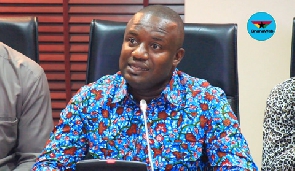Mr. Kabral Blay Amihere, Chairman of National Media Commission (NMC), on Wednesday said the time had come for Ghana to have a Broadcasting Bill that would serve as a legal framework to manage the broadcasting landscape.
“Ghana as at now does not have any measure in place to regulate media houses, but it has reached a point where there should be clear sanctions to any media house that seeks to endanger national stability. If we need to follow best practices, then we need a legal framework”.
Mr. Blay-Amihere, made the observation at the launching of the African Media Barometer Ghana 2011 Report, by Friedrich Ebert Stiftung (FES) in Accra.
The report would serve as a useful measure of media performance and help to reflect on the state of the media including their successes and challenges.
Mr. Blay-Amihere said the law would make it possible for issues of standards to be determined and clearly defined regime of sanctions could be administered to media houses that flouted media regulations.
He said the law would address issues of public service obligation, content, issues of monopoly, community broadcast service and the issues of frequency authorisation in this new era of digital migration.
Mr. Blay-Amihere said, in the report, there was no fairness and equity in the allocation of frequencies for media houses.
He noted that the report would allow industries to have the perspective of the panel, whose views of the media could provide land marks for reflection and for the media to restrategise for media development across the country.
He said, the report provided an indepth into the freedom of expression including freedom of the media, the media landscape including the emergence of new media, broadcasting regulation and high level of professional standards by the media.
He pointed out that with media pluralism and a diverse media landscape, there were now more platforms for citizens and journalists to express themselves.
Mr. Blay-Amihere said the report indicated that, most commercial media were business driven enterprises with the main objective to make money by advertiser’s delivering large audiences to the advertiser, adding that this had resulted in a trend towards sensationalism.
He commended the panel for a good job done in bringing out a comprehensive report that would guide media houses in the performance of their duties, and called on government to pass the Broadcasting Bill with the sense of urgency, and also urged stakeholders to take part for the Bill to be passed to regulate the airwaves.
Mrs Daniella Kuzu, Resident Director, Friedrich Ebert Stiftung (FES), said the report published every two to three years engaged 12 representatives from civil society organisations and media houses.
She said FES established, dealt extensively with the media and sought to continuously tackle issues relating to the performance of media houses across 28 African countries.
Mrs Kuzu said FES measured media situations and served as a practical lobbying tool for media reform, adding that it informed the public about the real performance of media houses.**
Regional News of Wednesday, 6 June 2012
Source: GNA
















